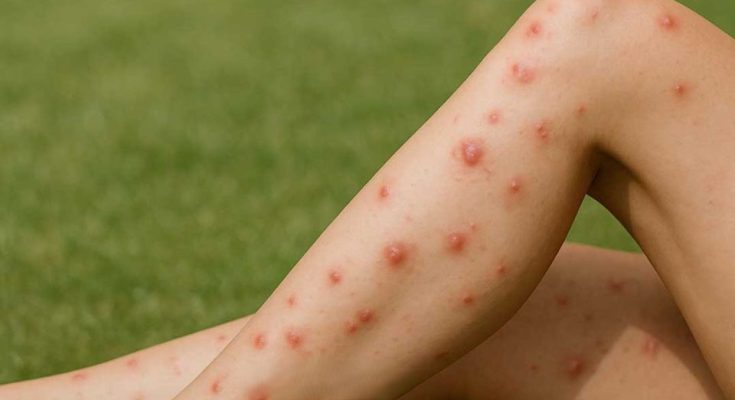Mosquitoes are more than just a nuisance; they are vectors for various diseases and can cause significant discomfort. If you find that mosquitoes seem to target you more than others, you’re not alone. Understanding why mosquitoes are attracted to certain individuals can help you take proactive steps to protect yourself. Various factors, including body chemistry, heat, and even the color of your clothing, can influence mosquito attraction. By learning more about these factors, you can better prepare and protect yourself from these persistent pests.
The Science Behind Mosquito Preferences
Research has shown that mosquitoes are attracted to carbon dioxide, body odor, and heat. They have specialized sensors that can detect carbon dioxide from up to 50 meters away. Additionally, certain compounds found in human sweat, such as lactic acid, ammonia, and uric acid, can make some people more appealing to mosquitoes. Genetics also play a role, with studies suggesting that mosquitoes are more attracted to people with Type O blood. Understanding these scientific principles can help you identify why mosquitoes might prefer you over others.
Factors That Make You a Mosquito Magnet
Several factors can increase your attractiveness to mosquitoes. These include your body temperature, as mosquitoes are drawn to heat. Pregnant women are often more susceptible because they exhale more carbon dioxide and have higher body temperatures. Alcohol consumption can also make you more appealing to mosquitoes, as it increases your body temperature and alters your skin chemistry. Additionally, wearing dark clothing can make you more visible to mosquitoes, as they use vision to locate hosts. Knowing these factors can help you make informed decisions to reduce your risk of mosquito bites.
Health Risks Associated with Mosquito Bites
Mosquito bites are not just itchy and annoying; they can also pose serious health risks. Mosquitoes are known carriers of diseases such as malaria, dengue fever, Zika virus, West Nile virus, and chikungunya. These diseases can lead to severe health complications and, in some cases, can be life-threatening. It is crucial to be aware of the symptoms of these diseases and seek medical attention if necessary. Protecting yourself from mosquito bites is not only about comfort but also about safeguarding your health.
Top 10 Home Remedies to Combat Mosquito Bites
If you do get bitten, there are several home remedies that can help alleviate the itching and swelling.
1. Cold Compress
How to use:
Wrap a few ice cubes in a clean cloth or use a cold gel pack.
Apply it directly to the mosquito bite for 10–15 minutes.
Repeat every few hours as needed to reduce swelling and numb the itch.
2. Aloe Vera Gel
How to use:
Use fresh aloe vera by cutting open a leaf and scooping out the gel.
Alternatively, use 100% pure aloe vera gel from a store.
Apply a small amount directly to the bite.
Let it dry on the skin. Reapply 2–3 times daily.
3. Honey
How to use:
Dab a small drop of raw honey (preferably manuka or organic honey) onto the bite.
Let it sit uncovered for 15–20 minutes or until it dries.
Wash off gently if it becomes sticky or attracts dirt.
Can be reapplied a few times a day.
4. Baking Soda Paste
How to use:
Mix 1 tablespoon of baking soda with just enough water to form a thick paste.
Apply the paste directly to the bite.
Leave it on for 10 minutes, then rinse off.
Use 1–2 times a day to reduce itching.
5. Apple Cider Vinegar
How to use:
Dilute 1 part apple cider vinegar with 1 part water.
Dip a cotton ball in the mixture and apply it to the bite.
Let it air dry or rinse off after 10–15 minutes.
Helps with itching and prevents infection.
6. Tea Tree Oil
How to use:
Mix 1–2 drops of tea tree oil with 1 teaspoon of carrier oil (like coconut or olive oil).
Apply a small amount to the bite using a cotton swab.
Do this 2–3 times a day.
Avoid direct application of undiluted oil as it can irritate sensitive skin.
7. Oatmeal Bath
How to use:
Add 1 cup of colloidal oatmeal (or finely ground plain oats) to a lukewarm bath.
Soak in the bath for 15–20 minutes.
Pat skin dry gently afterward.
Great for multiple bites or widespread irritation.
8. Basil Leaves
How to use:
Crush a few fresh basil leaves to release the oils.
Rub the crushed leaves directly onto the bite.
Alternatively, boil a handful of basil in 2 cups of water, cool, and apply the infused water with a cotton ball.
Use as needed throughout the day.
9. Lemon Juice
How to use:
Squeeze fresh lemon juice onto the bite using a cotton swab.
Let it dry naturally.
Use only indoors and avoid sun exposure, as lemon juice can make skin photosensitive.
Not recommended for broken skin due to stinging.
10. Garlic Paste
How to use:
Crush 1–2 garlic cloves and mix with a bit of coconut oil to reduce skin irritation.
Apply a small amount to the bite and leave on for 5–10 minutes.
Rinse off thoroughly.
Use sparingly; garlic can be potent on sensitive skin.
Conclusion: Staying Safe from Mosquito Bites
Preventing mosquito bites requires a combination of awareness, preparation, and proactive measures. By understanding what attracts mosquitoes and the risks associated with their bites, you can take steps to protect yourself and your loved ones. Use insect repellent, wear protective clothing, and eliminate standing water around your home to reduce mosquito breeding grounds. Stay informed about mosquito-borne diseases in your area and take necessary precautions. With the right knowledge and tools, you can enjoy the outdoors without the constant worry of mosquito bites.



